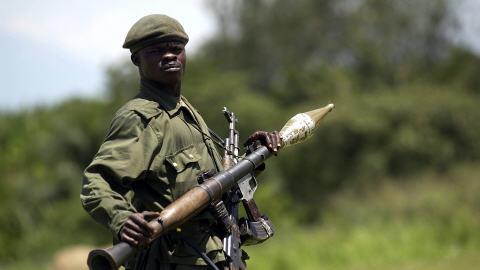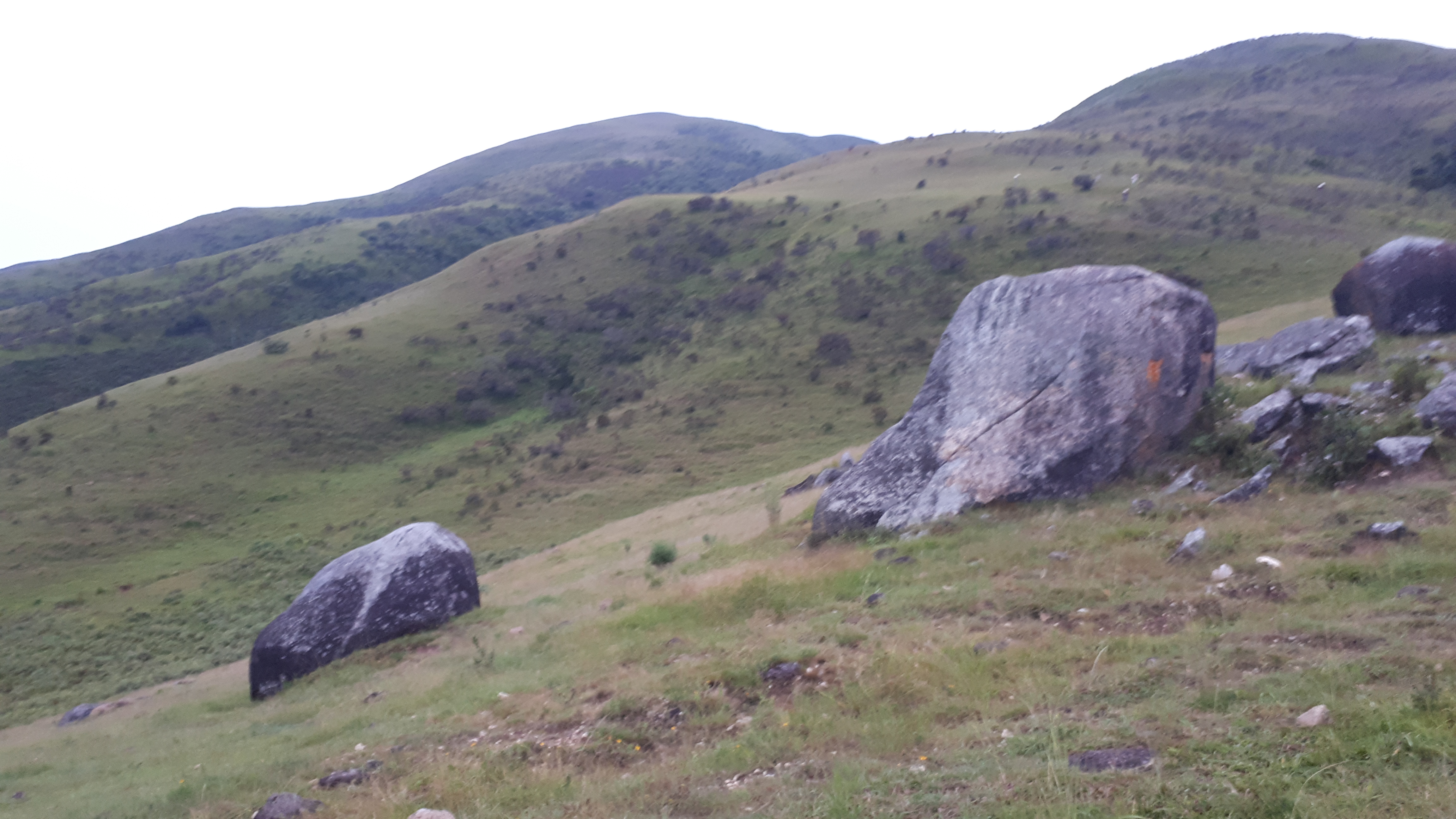
I grew up in a remote village of Itombwe customary chieftaincy (Collectivité d’Itombwe), Mwenga territory in South-Kivu, Democratic Republic of Congo (DRC). The first challenges I had to come across were related to learning things at school that were seemingly as stories, untouchable. Embarrassingly, it may sound as nonsense to figure out that during my earlier age I have been shown where a road in my dad’s crop field had crossed earlier 60s. A story-teller said that there used to be a road built to connect Minembwe – Turambo to a locality called Gipurizo because an unnamed white man planned to have a dairy farmland there. Surprisingly, you don’t have neither to think about why it was like that nor where was my dad’s vehicle. I will simply be unable to finger-pointing exactly who to blame for living an area not connected to road. In a real sense, a health center, hospital, electricity, television, vehicle and any basic socio-economic infrastructures remained stories told by my teachers until my 16s.
At one point, I thought being victim of intercommunity conflicts that had devastated the South-Kivu region, especially Mwenga-Fizi territories since 1960. These intercommunity conflicts have erupted the eve of the DRC independence; hence highlighting the role of colonial rule. Afterward, I came to realize that my view was narrowly right as to some extent the region was quite calm between 1980-1990; and neighboring communities were also living likely the same conditions as I did. While not underestimating the effects of intercommunity conflicts on that stated situation in my area, I guess it would be unfair to putting all these lacking services on the back of community conflicts. It is then late 90s that I tried to look around and search who to blame, as I could be able to consider the role of the state into all these messes. Unfortunately, the Revolutionary Popular Movement (Mouvement Populaire de la Revolution: MPR), through “macho[1] ya MPR”, has had constructed a myth around its intelligence capability to detect everything. The myth could never allow me to even blame the state in my own inside. The myth made my mind to keep Mobutu’s regime as powerful till 17 may 1997 and I have never guessed his ouster.
Then the campaign of AFDL (Alliance des Forces Démocratiques pour la Libération du Congo/Zaïre), for having ousted the Mobutu’s regime, raised an era of hope, despite flaws alongside its progress toward Kinshasa. My expectation was that these are contradictions that would be fixed at any time and I was sticking on the huge achievement of overturning the myth. The new regime established by AFDL leaders had 15 months to break down into 2 to 3 powerful parties fighting over power and resources control. Since 1996, the new mood revived and exacerbated community clashes into armed confrontations. These clashes and confrontations went on to be transformed into ethnic militias, fighting for self-defense each other. The puzzling explanation looks like a paradox and it remains hard to get its answer. Why is everyone seeing himself as self-defending? The puzzling stance could finally end up into extermination of the weak in the name of “self-protection and my community interests”. Oddly, politicians and opportunist local leaders have, for so long time, had deceitfully used these arguments.
The recurring insurgencies and rebellions that followed in Eastern DRC, backed or not by neighboring countries as they used to dismiss, had created another track to finding someone else to blame. It was exactly the one exploiting and manipulating the intercommunity grievances largely for his interests. Specifically, I was feeling that the appropriate approach to help a neighbor (DRC) would be through a constructive and concise advice and let him breathing. Unfortunately, insurgencies never stopped to get propelled; thus fuelling on the existing burning root-seated issues. Therefore, my village and the neighboring territories in general, rather than improving, their situation went worse again and again. Consequently, people have desperately lost courage to get out of this disorderliness.
Later on, I finally realized that the above mentioned individuals bear their responsibility of what had happened in my village/area, but they are not sole responsible. The following description can easily point a finger to another one. Though potentially rich in sources of energy, 9%[2] of DRC population estimated to 75 million can only access to electricity. It means that they are around 6 750 000 privileged individuals accessing electricity when we all know it necessity into daily life. However, 3 07 5000, i.e 45% of these advantageous people live in Kinshasa. Consequently, the remaining 55% are unequally distributed across provinces, each having on average 6%, roughly 412 500 individuals accessing electricity. Nevertheless, while 70% of Congolese population lives in rural areas, the coverage rate of electricity is only 1% (525 000) in these remote areas. If someone distributes the figure on the number of provinces, you get a clear answer why there is no electricity in my village since established 1977. Surprisingly, this is one of the socio-economic indicators of Congolese population, but most of its characteristics are in red. Put it simply that most of rural areas in DRC looks like my village described in paragraph one.
I was 8 years when late president Mobutu had already ruled Zaire over 16 years. Until he gets ousted to power in 1997, there was any significant change in my village and even the territories around. The same is seemingly happening now in my village since 16 years after Mobutu’s overthrow. Then, I tend to conclude that all these socio-economic failures are no longer to be blamed only to King Leopold II, president Mobutu, neighboring countries and their pawns or intercommunity conflicts. Halfway of the president Mobutu’s regime, but nothing has extensively changed besides some individuals accumulating wealth for their own; hence widening simply inequalities. Since liberation campaigns, the general situation in DRC looks going downward, making difficult to predict a better future unless another socio-economic specialized intervention brigade will be formed.
For skeptical reasons and uncertainty of the future, I am being tempted to get convinced that these warlords controlling the eastern part of DRC wouldn’t have done so if they had found an attractive environment allowing them to evolve in other domains. Most of them would have been good business-operators, doctors and nurses, engineers… and opening up large opportunities to their future. So longer as such attractive environment is yet established, it is possible to predict that those who are 8 now will be dealing again with guns as a way of airing their claims. However, the argument doesn’t underestimate the root causes of conflict that require relevant response; rather it is arguing that the state absence contributes in widening these issues. The point does neither calling DRC as “failed” state, rather it is emphasizing on its role for improving its population standard living by implementing hugely into public services.
NTANYOMA R. Delphin
Twitter Account @delphino12
Blog: www.easterncongotribune.com
[1] Macho, a Swahili word literally means eyes, i.e the then ruling party’s eyes


I wanted to thank you for this very good read!! I definitely enjoyed every bit
of it. I have you book marked to look at new stuff you post…
Thanks 50 PACK for the interest you showed in my blog. I ouldn’t realize that most of comments got spammed. It’s today that I realized that you have made a nice comment and you enjoyed the blog. If any observations remained, don’t hesitate to drop. Keep up
Delphin
Thanks 50 Pack for your encouragenment. I’ve been victim of spams and couldn’t realize that there are many comments waiting for aproval.
Thanks again
Good post! We are linking to this particularly great article on our site.
Keep up the good writing.